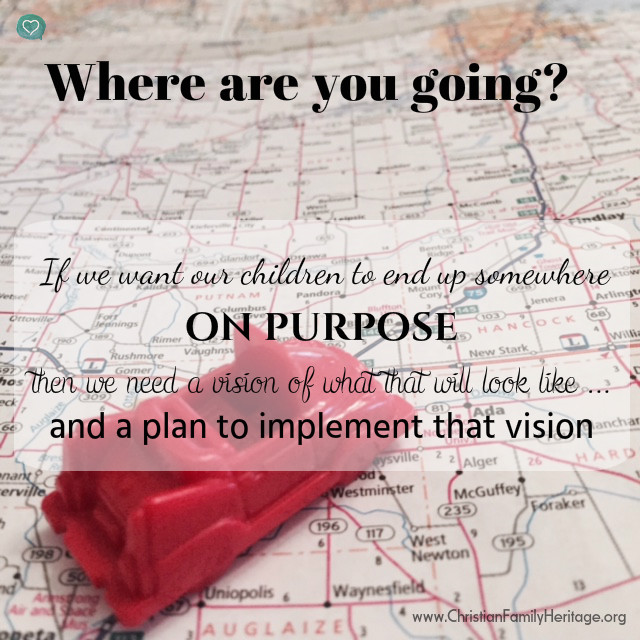Did you dream last week? And I mean DREEEEEAAAAAM? Big, huge, ginormous, God-sized dreams for your children? Did you dream about what their hearts will look like? What their character will look like? What experiences they will have in life? Will they know which fork to use at a fancy restaurant? Will they have a heart for the lost? Compassion for the suffering? Will they know how to change a flat tire? Spend wisely? Give generously? As Rich and I dream and imagine each of our children leaving the nest for their next destination in life, we have thought a lot about what they will look like when they move on. And I don’t mean how tall they’ll be or how they’ll style their hair. Instead, what will they look like on the inside? We want to get somewhere on purpose; we have a destination in mind for each of our children. But getting there isn’t going to happen overnight. And it’s not going to happen unless we have a vision that we work hard to implement.
Each year Rich and I try to steal away for a vision planning retreat. Sometimes that’s a weekend in a bed and breakfast downtown and sometimes it’s a few hours at a local coffee shop. Time and finances tend to be the determining factors. Location isn’t important. What is important is that we set aside time to plan. Good intentions don’t get us anywhere. Packing is easy; we take a Bible, our vision journal and any notes we’ve been jotting down during the year. Then we use a 3-step process to vision plan.
First, we pray. In Philippians 4:6-7 we are told, “Do not be anxious about anything, but in everything by prayer and supplication with thanksgiving let your requests be made known to God. And the peace of God, which surpasses all understanding, will guard your hearts and your minds in Christ Jesus.” We want God’s heart for our children. His vision. His plan. “Where there is no vision, the people perish.” Proverbs 29:18
Secondly, we write down the goals we have for each of our children in the vision journal. Each child has their own section, although there is also a shared section where we write down common long-range goals for all of them. This section is being added to every year. These goals are spiritual in nature, as well as physical and intellectual. I’m not going to share our entire list as I want you and your spouse to dream and plan and seek God together, but I will share a few of our long range goals for each child to give you a jump start:
-
To know and love Jesus Christ as their Lord and Savior and to be growing in their relationship with Him
-
To have a close relationship with their siblings and with Rich and me
-
To have excellent table manners
-
To have excellent communication skills
-
To be able to manage money wisely and not incur debt
-
To have compassion for the suffering
-
Purity in heart and mind and body
We also write down shorter-range spiritual, emotional, intellectual, and physical goals. These are often yearly goals that we’ll look back on at our planning retreat the following year to assess if they were accomplished. As we plan for each child, we think about areas in their character that may have frustrated us over the past year. Then we turn that around into a life-giving goal. For example, for the child who has been caught telling untruths, we will focus on making truth telling a priority for him this year. Or for the child with the messy room, we’ll focus on learning orderliness. Some other examples of short-term goals could include:
-
For a 6 month old: Learn to crawl and then walk in the next year.
-
For a 2 year old: To be potty trained
-
For a 5 year old: To learn to swim, to be able to sit through a church service quietly
-
For an 8 year old: to take ownership of their daily devotion time, learn to play piano
-
For a 12 year old: to find ways to serve the neighbors and do this monthly, to run a 5K race, to teach her younger sibling a skill, to learn to mow the lawn
-
For a 15 year old: to obtain his driving permit and learn to drive, to find a summer job, to read the entire Bible





Anne Marie
Well done Julie, very practical and encouraging. Thank you for sharing. 🙂